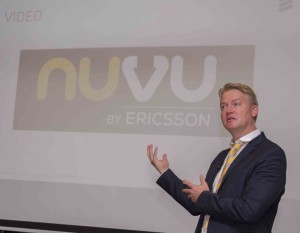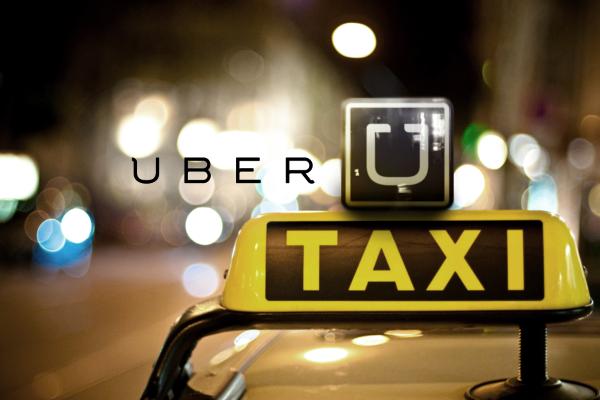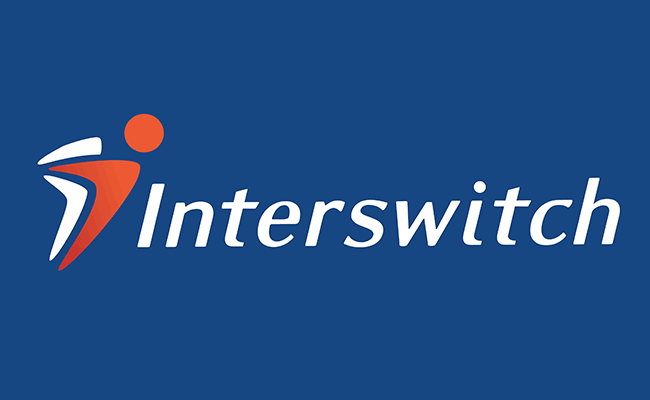
Robert Rudin, Country Manager and VP Sub Saharan Africa at Ericsson, during the Nuvu media brief
Ericsson’s ConsumerLab has published its first ever TV and Media report for Kenya, which reflects the views and habits of over 13 million Kenyans aged 18-69 who watch TV and video content over the internet at least once a week.
Face-to-face interviews with 1,500 respondents aged 18–69 who watch TV and video content over the internet at least weekly, with the interviews taking place in eight urban areas in Kenya. Overall, the data represents the views of over 13 million people in Kenya.
The report offers an interesting insight into the media consumption trends. Kenyans are slowly shifting from watching content on traditional devices like TV to smart devices.
Some highlights from the report:
- 80 percent of respondents who watch video content over the internet at least once a week own a smart device, with 60 percent of their viewing time spent on these devices.
- The smartphone is also the primary device used to connect to the internet, with 84 percent of respondents using mobile broadband on their smartphones or tablets.
- 63 percent of students and 59 percent of young white-collar professionals in Kenya would like to watch content of their choice on a personal device.
- 46 percent are interested in mobile video on-demand with young, white-collar professionals showing the strongest interest at 53 percent. The key barrier to their adoption is lack of speed and reliability of the internet connection.
- Almost 50 percent of the recipients were willing to pay for both a faster internet connection to download content, and to get reliable mobile internet connectivity for streaming.
- 83% of those surveyed are interested in having a single provider for TV and broadband services.
As at June 2015, the Communications Authority of Kenya reported that the country has 19.9 million Internet subscriptions with 99% of these (19,8 million) being mobile data subscriptions.
Thanks to the connectivity offered by mobile devices, the report notes that Kenyans are no longer restricted by time or place when it comes to watching TV and video. This trend towards on-demand video is creating demand for better data connections.
The report also notes new trends in viewing, with a shift from communal television viewing with family to personalized viewing on smart devices, with individuals having the freedom and flexibility to choose what to watch and when to watch it.
According to Robert Rudin, Country Manager at Ericsson Kenya, the rise of video viewing on smartphones and tablets presents a unique opportunity for players in for content creators. “Local operators, content providers and broadcasters all stand to gain from this shift in the way people consume television and video content. The demand for flexibility and reliability will definitely influence their strategies.”
To tap into the video-on-demand market, Ericsson announced the availability of their Nuvu platform to mobile operators in Kenya. Nuvu is a Value Added Service targeting mobile operators, and is expected to open new 3G/4G revenue avenues.
Kenyan content producers attending the launch showed a lot of interest in Nuvu, given the platform will be rolled to mobile operators across Africa, meaning content on the platform will reach a wide audience.
The Nuvu platform offers a mix of international and local content, with a catalog of about 3,000 titles including Nollywood, Hollywood, Bollywood, and local gospel content.
Nuvu will be rolled out through mobile operators, with customers choosing between a monthly premium ‘all you can eat’ package going for about $5 offering access to all content, and a weekly access package going for about $2 offers access to select content.
The platform offers high quality video without buffering. Content is downloaded during network off peak hours, such as during the night, making optimum utilisation of the mobile network and saving on data costs for the customer. Users will get content recommendations based on what they have watched before. The service is optimised to be light on battery usage on smartphones.
Content downloaded via Nuvu will be secure, as it comes with Digital Rights Management (DRM) encoded. This protects content from piracy, an important consideration especially for content producers.
Kenya is expected to be the second country in Sub-Saharan Africa to have Nuvu, with Ericsson partnering with Airtel to launch the service in Nigeria. The service is expected to start around February/March 2016.



















